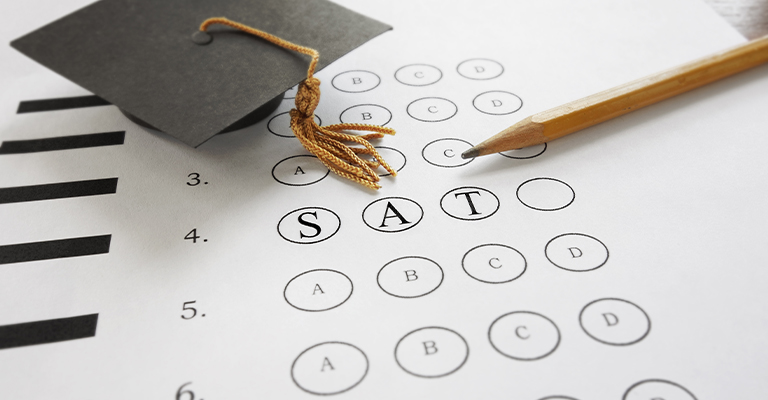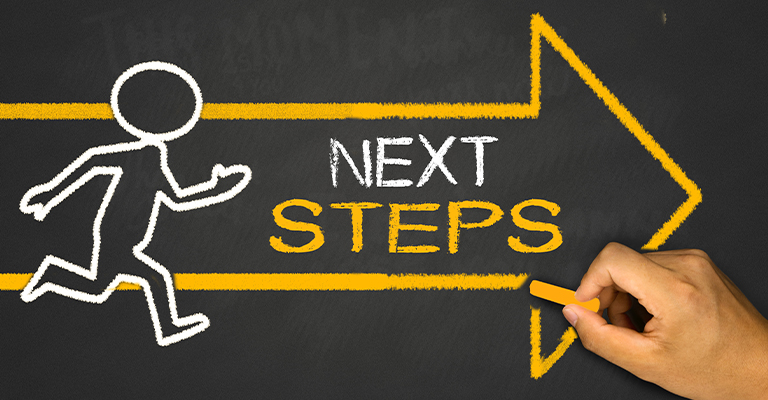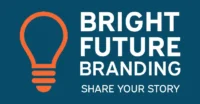Your teenager’s college future might hinge on a few Saturday mornings. The SAT and ACT remain crucial gatekeepers to college admissions and merit scholarships. Consequently, you’re probably considering standardized test prep services to boost your student’s scores.
But do these services work for your family? Moreover, which option fits your student’s learning style and your budget? You’re facing a rapidly growing industry. The U.S. market is expanding by over $18 billion through 2029. However, this explosive growth has created confusion as you navigate countless options.
You’ll find choices ranging from free online platforms to premium private tutoring. Additionally, you’ll see prices spanning from zero dollars to several thousand. Understanding these options helps you make informed decisions about your student’s preparation.
This guide breaks down everything you need to know. You’ll discover different service types, realistic pricing, and actual effectiveness data. Furthermore, you’ll learn how to choose the right fit and maximize your investment.
What Are Standardized Test Prep Services?

Quick Answer: Test prep services provide test-taking strategies, content review, and practice materials. They help your student improve SAT and ACT scores. Formats include self-paced courses, live classes, and private tutoring.
Before you invest, understand what these services provide. Standardized test prep services help your student prepare for college entrance exams. These programs teach test-taking strategies, review content, and provide practice materials. Most services focus on the SAT and ACT.
You’ll find these services in many formats. Some offer structured courses with instructors. Others provide self-study materials. Additionally, many programs combine video lessons, practice questions, and full-length practice tests.
When you choose a prep service, you’re investing in score improvement. Better scores open doors to selective colleges and scholarship opportunities. In fact, even small score increases translate to thousands of dollars in merit aid.
Most services promise to teach more than just content. They focus on test-specific strategies that help your student work efficiently under pressure. For example, they teach shortcuts for math problems and techniques for reading passages quickly. With this foundation, you’re ready to explore available service types.
Types of Standardized Test Prep Services Available
Quick Answer: Four main types exist: Self-paced online courses ($0-$300), live online classes ($700-$1,000), and private tutoring ($60-$300/hour). Intensive bootcamps ($1,000-$3,000) also available. Choose based on your student’s learning style and timeline.
Now that you understand what prep services offer, explore your options. Different formats work for different students. Your student’s learning style, schedule, and goals should guide your decision.
Self-Paced Online Courses
If your student is self-motivated, start with self-paced courses. These platforms provide video lessons, practice questions, and progress tracking. Your student works through materials on their own schedule.
You’ll find Khan Academy offers free SAT prep through its College Board partnership. Your student gets personalized study plans and unlimited practice questions. Similarly, Magoosh provides affordable self-study options starting under $200.
These courses work best if your student has strong self-discipline. However, you’ll appreciate the flexibility when juggling sports and activities alongside schoolwork.
Many platforms include email support from instructors. For instance, Magoosh provides expert help when stuck on difficult problems. This bridges the gap between self-study and live instruction.
Live Online Classes
If your student needs more structure, consider live online classes. These programs provide accountability through scheduled sessions with instructors and classmates. When you enroll, you’re committing to several weeks that keep your student on track.
Kaplan’s live online courses include 18 hours of instruction for around $700. Princeton Review charges approximately $950 for similar class time. Class sizes usually cap at 25 students for better interaction.
The interactive format helps your student stay engaged. Your teenager can ask questions in real-time and participate in discussions. Additionally, scheduled classes create routine and prevent procrastination.
You’ll pay more for live classes than self-paced options. However, many parents find the investment worthwhile for added structure and direct access to experienced instructors.
Private Tutoring Options

For personalized attention, explore private tutoring. Tutors tailor lessons to your student’s specific weaknesses and learning style. This customization often produces the fastest results.
Tutoring rates vary significantly by location and expertise. SAT prep tutors average $62 per hour nationally. However, rates range from $25 to over $300 hourly in competitive markets.
Premium services like PrepMaven employ Ivy League graduates with top test scores. You’ll typically pay $80 to $200 per hour. Conversely, newer tutors or college students charge less.
Most families invest in 10 to 20 tutoring hours total. Therefore, budget between $500 and $4,000 or more. Despite the expense, one-on-one attention addresses specific challenges quickly.
Intensive Bootcamp Programs
When test dates approach quickly, consider intensive bootcamp programs. These options compress preparation into short sprints. Your student will attend multiple hours of instruction over several days or weeks.
INTO PREP offers intensive programs with score guarantees. They promise your student either a 270-point SAT improvement or achieving a minimum 1500 score. Other providers offer similar concentrated preparation before upcoming test dates.
These programs demand considerable time commitment. Your student might attend several hours daily for a week or more. However, the focused approach builds momentum and confidence when time is limited.
Consider bootcamps if your student thrives under pressure. They also work well when you’ve waited too long to start preparing. The intensive format leaves little room for procrastination. Now you’re ready to explore costs.
How Much Do Test Prep Services Cost?

Quick Answer: Test prep costs range from $0 (Khan Academy) to $10,000+ (premium tutoring). Most families spend $200-$1,000 on structured courses. Private tutoring averages $62/hour nationally.
Understanding the financial investment helps you plan your budget wisely. Pricing varies dramatically across service types. Remember that higher prices don’t always guarantee better results.
Budget-Friendly Options
You’ll be relieved to know that free and low-cost options exist. Khan Academy provides comprehensive SAT prep at zero cost. Your student gets thousands of practice questions and personalized study plans.
Kaplan’s on-demand course starts around $200 for basic access. Your student gets 50+ video lessons and 1,000+ practice problems. This costs significantly less than live instruction while providing solid fundamentals.
Magoosh offers self-paced courses for under $200. Their platform includes video lessons, practice questions, and email support. Furthermore, they guarantee a 100-point score improvement or your money back.
These budget options require your student to stay motivated independently. Your teenager must maintain discipline without scheduled classes. However, dedicated students can achieve excellent results with consistent practice.
Mid-Range Programs
To balance cost and support, explore mid-range programs. Live online classes typically fall into this category. You’ll pay between $700 and $1,000 for structured instruction.
Kaplan’s live online courses cost approximately $700 for 18 hours. Princeton Review costs around $950 for similar programming. Both include access to practice tests and study materials.
These programs provide more accountability than self-study. Your student benefits from instructor expertise and peer interaction. The structured approach often justifies the additional cost over self-paced options. Moreover, you’re making a modest investment compared to potential scholarship returns.
Premium Services
For comprehensive support, consider premium services and private tutoring. Kaplan’s Unlimited Prep costs approximately $2,000. Your student gets all SAT, ACT, and AP materials until December of senior year.
Private tutoring represents the highest investment. Total costs range from $1,500 to $10,000 or more. However, personalized attention addresses individual challenges most effectively.
Elite tutoring companies charge premium rates. Services employing perfect scorers or Ivy League graduates command $150 to $300 hourly. These experts bring specialized knowledge and proven track records.
Premium services make sense for specific situations. If your student targets top universities, you may benefit from expert guidance. Additionally, when your teenager struggles with concepts, you need the customized attention only tutoring provides. Before committing, you want to know whether these services deliver results.
Do Standardized Test Prep Services Actually Work?
Quick Answer: Yes, test prep works but with modest gains. Independent research shows average improvements of 50-150 points on the SAT. Your student needs dedicated effort. Claims of 300+ point increases are extremely rare.
You deserve honest answers about effectiveness. Consider this before investing your money. Research shows mixed but generally positive results. Understanding realistic expectations helps you evaluate options. It also helps you avoid disappointment with overhyped promises.
When you examine independent research, you’ll find modest improvements documented. A comprehensive 2009 study found average gains. These were 0.6 points on ACT Math. SAT sections showed 8-15 points improvement. These increases fall within measurement error ranges.
However, commercial providers report larger improvements. College Board data suggests 6-8 hours of prep produces 90-point SAT gains. Furthermore, 20 hours of study shows 115-point improvements.
You’ll find the truth likely falls between these extremes. A Brookings Institution analysis concluded prep raises scores measurably but not substantially. Additionally, effects prove smaller than commercial providers claim.
Several factors influence the effectiveness you’ll see. Your student’s motivation plays a crucial role. Similarly, starting score levels affect potential improvement ranges.
If your student currently scores lower, you’ll often see larger gains. They have more room for improvement available. Conversely, when your student already scores high, you’ll face diminishing returns.
You should remember that quality matters more than quantity. Targeted preparation focusing on weaknesses produces better results. Additionally, consistent practice over time beats cramming.
Most students can improve 50-150 points with dedicated effort. However, you should be skeptical of claims promising 300-500 point increases. These remain extremely rare. With these realistic expectations set, you’re ready to evaluate specific companies.
Major Test Prep Companies to Consider

You’ll find several established companies dominating the market. Each offers different strengths and approaches. Understanding these differences helps you compare options effectively.
Kaplan stands as one of the oldest names in test prep. They offer courses for over 90 standardized tests. Their instructors score in the 90th percentile or above. You’ll find multiple format options including self-paced, live online, and unlimited access programs. Their video lessons receive high marks for engagement and clarity.
Princeton Review offers strong score guarantees worth evaluating. They promise your student will score 1240+ on the SAT. Students scoring 1160+ can expect 1400+ guarantees. Their classes allow up to 25 students with interactive features. Your student can access daily virtual classrooms for extra help.
PrepScholar specializes in extensive practice materials. You’ll get 4,300+ ACT practice questions and six full-length tests. Combined with SAT materials, your student accesses over 10,000 practice problems. Their adaptive learning approach personalizes instruction automatically. They offer generous access periods compared to competitors.
Prep Expert brings a unique founder story. Dr. Shaan Patel improved his SAT score by 640 points to perfect. He appeared on Shark Tank and built a national brand. You get guarantees of 200-point SAT or 4-point ACT improvements. Their approach focuses on 100+ test-taking strategies. Prices remain more affordable than many premium competitors.
Quick Comparison: Major Test Prep Companies
| Company | Price Range | Guarantee | Best For | Instructor Quality |
|---|---|---|---|---|
| Kaplan | $200 – $2,000 | Varies by package | Multiple format options | 90th+ Percentile Scorers |
| Princeton Review | $950 – $3,000+ | SAT 1240+ | Strong guarantees & support | Trained Instructors |
| PrepScholar | $400 – $1,500 | Varies | Extensive practice materials | Experienced test experts |
| Prep Expert | $600 – $1,500 | SAT: 200 point increase ACT: 4 point increase | Budget-conscious families | Top 1% scorers |
How to Choose the Right Service for Your Student
You need a systematic approach. This helps select the right prep service. Your student’s unique needs should drive this decision. You’re making an important choice now. Additionally, you must work within budget constraints. Maximizing value for your investment matters greatly.
Decision Framework: Finding Your Best Fit
Use this framework to quickly identify matches. Find which standardized test prep services fit your situation best.
If your student is self-motivated and disciplined:
- Choose self-paced online courses
- Options: Khan Academy, Magoosh, Kaplan on Demand
- Best when: You have 3+ months before testing
- Cost: $0-$300
If your student needs structure and accountability:
- Choose live online classes
- Options: Kaplan Live, Princeton Review
- Best when: Your student responds well to schedules
- Cost: $700-$1,000
If your student has specific weaknesses:
- Or they face learning challenges
- Choose private tutoring
- Options: PrepMaven, Prep Expert, local tutors
- Best when: You need personalized attention
- You also need flexible pacing
- Cost: $500-$10,000+
If your test date is approaching quickly (under 6 weeks):
- Choose intensive bootcamp programs (INTO PREP)
- Best when: Your student can commit to daily intensive sessions
- Cost: $1,000-$3,000
If budget is your primary concern:
- Start with Khan Academy (free) supplemented by library prep books
- Upgrade to Magoosh ($200) if you need more structure
- Cost: $0-$200
If your student targets top-tier universities (1500+ SAT / 34+ ACT):
- Choose premium tutoring with proven track records
- Look for tutors with perfect scores or Ivy League backgrounds
- Cost: $2,000-$10,000+
Evaluating Your Options
You should start by assessing your student’s learning style honestly. If your teenager is self-motivated, you can succeed with independent study programs. Conversely, when your student needs accountability, you’ll benefit from live classes or tutoring that provides structure.
Beyond the decision framework above, you should consider these additional factors. You need to evaluate your student’s current score level when deciding. If your teenager scores lower currently, you need comprehensive content review services. Meanwhile, when your student already scores high, you’ll benefit from advanced strategy and practice instead.
You need to read reviews and testimonials carefully. Do this before committing money. Look for specific outcome stories. These beat vague promises you’re seeing. Furthermore, you should check whether companies offer guarantees. Trial periods reduce your risk significantly.
You want to ask about instructor qualifications. Do this when you contact companies. Find out whether teachers scored highly. They should have done well on tests themselves. This happens before teaching others. Additionally, you should inquire about their teaching experience. Ask about training they’ve received professionally.
You must consider scheduling flexibility. Your busy family needs this option. When your student has commitments, you need programs. These should accommodate their existing schedule fully. Therefore, you should verify whether recorded sessions exist. Check if makeup classes are available. This matters when conflicts arise inevitably.
You can reduce risk significantly. Take advantage of trial periods offered. Many services provide free trials. They also offer money-back guarantees you should use. Take advantage of these opportunities available. Test fit before fully committing your money. Once you’ve chosen a service, you need something. You must maximize the value you’re getting.
Making the Most of Your Investment

Choosing a service is just your first step. Your student must engage fully to see expected results. Therefore, maximizing your investment requires commitment and strategy from everyone in your family.
Start preparation early to give your student adequate time. Beginning several months before testing produces better results than cramming. Additionally, spaced practice proves more effective than marathon study sessions.
Encourage consistent daily practice. Short daily sessions beat weekly marathon periods. Even 30 minutes daily builds skills and confidence steadily.
Have your student take full-length practice tests regularly. These simulations prepare your teenager for actual testing conditions. Moreover, they reveal weaknesses requiring additional focus before the real exam.
Review mistakes thoroughly with your student after each practice. Understanding why answers were wrong prevents future errors. Furthermore, this identifies patterns in misunderstandings that need immediate attention.
Communicate with instructors or tutors throughout the program. Asking questions about confusing concepts immediately accelerates learning. Additionally, request extra practice in challenging areas.
Track progress over time to ensure methods work. Regular benchmarking shows whether strategies are producing results. Consequently, you can adjust approaches when progress stalls.
Combine multiple resources strategically to enhance value. Free Khan Academy materials can supplement paid programs. Similarly, library books provide additional practice at no cost.
Maintain realistic expectations about score improvements. Most students improve 50-150 points with dedicated effort. However, remain skeptical of dramatic increases despite advertising claims.
Consider having your student retake the test. Most students improve scores on second attempts. In fact, colleges typically accept highest scores from multiple sittings.
Focus on scholarship returns when evaluating your investment. Even modest score improvements unlock significant merit aid. Therefore, view test prep as an investment in college affordability for your family.
Your Next Steps: Getting Started Today

Now that you understand standardized test prep services, it’s time to act. Your student’s test preparation journey begins with these concrete steps.
Step 1: Determine Your Timeline
Check when your student plans to take the SAT or ACT. Count backwards to determine how many months you have for preparation. Remember that 3-6 months provides adequate preparation time for most students.
Step 2: Assess Your Student’s Starting Point
Have your student take a free diagnostic test. Khan Academy offers free SAT diagnostics. The ACT website provides free practice tests. This baseline score reveals strengths and weaknesses.
Step 3: Set a Realistic Target Score
Research score requirements for your student’s target colleges. Check their admissions websites for middle 50% score ranges. Add 50-100 points to the middle range for a competitive target.
Step 4: Choose Your Service Type
Use the decision framework earlier in this guide. Match your student’s learning style, timeline, and budget to the appropriate service type. Don’t overthink this step.
Step 5: Start With Free Resources
Begin with Khan Academy regardless of which paid service you choose later. This helps you understand your student’s commitment level before investing money. You can always upgrade later.
Step 6: Schedule Regular Practice
Block specific times on your family calendar for test prep. Treat these appointments as non-negotiable commitments. Consistency matters more than intensity.
Step 7: Monitor Progress Monthly
Have your student take a full-length practice test monthly. Track scores to ensure your chosen method is working. Adjust your approach if progress stalls for two consecutive months.
Remember that starting is more important than choosing the perfect service. Take the first step today rather than waiting for ideal conditions.
Conclusion
Standardized test prep services can significantly impact your student’s college admissions and scholarship opportunities. However, success depends on choosing the right fit for your family’s unique situation.
You now understand the four main service types available. Self-paced courses work for motivated students on tight budgets. Live classes provide structure and accountability. Private tutoring delivers personalized attention. Bootcamps offer intensive preparation for approaching deadlines.
Remember that realistic expectations matter more than expensive programs. Most students improve 50-150 points with dedicated effort. This modest improvement can unlock thousands in merit aid. Therefore, even budget-friendly options can deliver significant returns.
The most crucial factor isn’t which service you choose. It’s whether your student commits to consistent practice. Free resources like Khan Academy work excellently for disciplined students. Premium tutoring helps struggling students who need personalized attention.
Start your preparation journey today rather than waiting for perfect conditions. Take a diagnostic test this week. Explore free resources immediately. You can always adjust your approach based on early results.
Your investment in test prep extends beyond test scores. Your student develops time management skills, discipline, and confidence. These qualities serve them well throughout college and beyond. Choose wisely, start early, and stay consistent. Your student’s future begins with the actions you take today. Good luck on your test prep journey!



